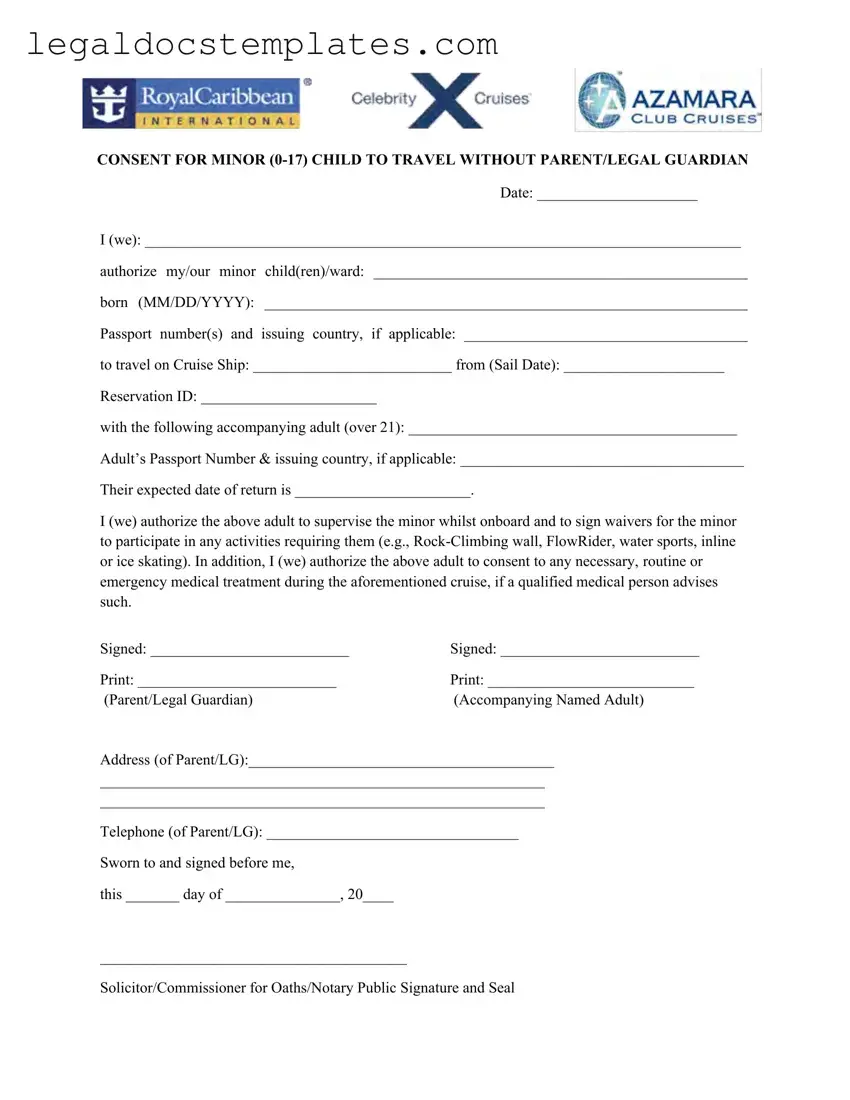Fill Out Your Royal Caribbean Parental Consent Template
The Royal Caribbean Parental Consent Form is a document required by Royal Caribbean International for minors traveling without their parents or legal guardians. It serves as a formal authorization, allowing young travelers to participate in cruises and related activities under the supervision of an assigned adult. For those planning a trip with minors, timely completion and submission of this form are crucial steps in ensuring a smooth and enjoyable journey.
To begin the process of obtaining and filling out this important document, please click the button below.
Access Royal Caribbean Parental Consent Now

Fill Out Your Royal Caribbean Parental Consent Template
Access Royal Caribbean Parental Consent Now

Access Royal Caribbean Parental Consent Now
or
⇩ PDF Form
Don’t spend hours on this form
Complete Royal Caribbean Parental Consent online in minutes, fully digital.
